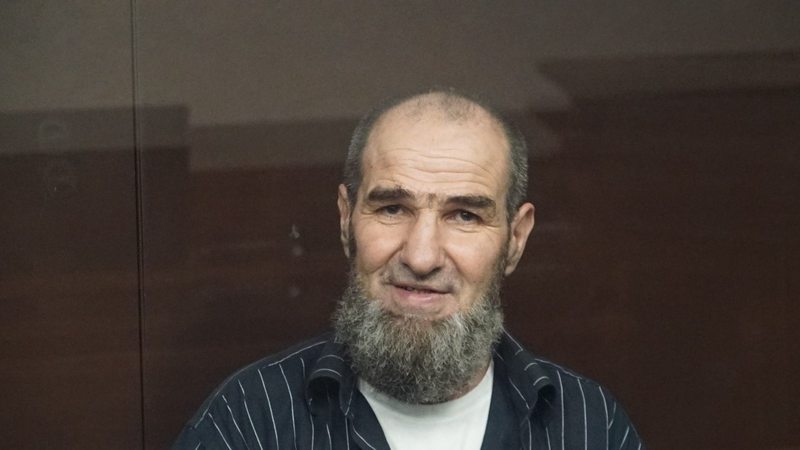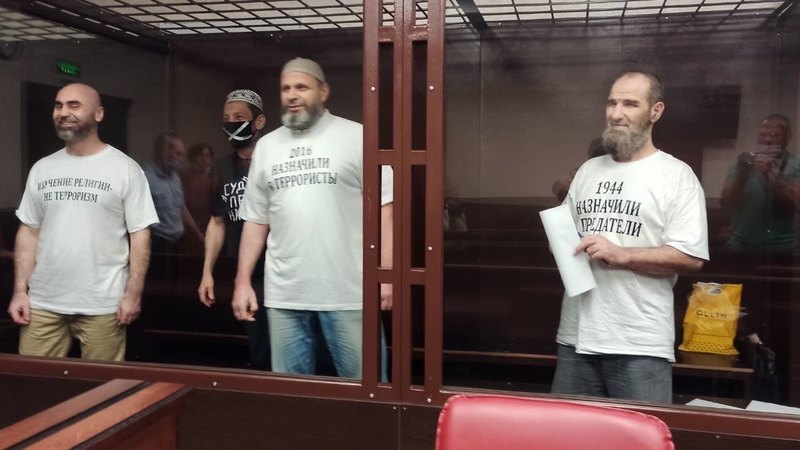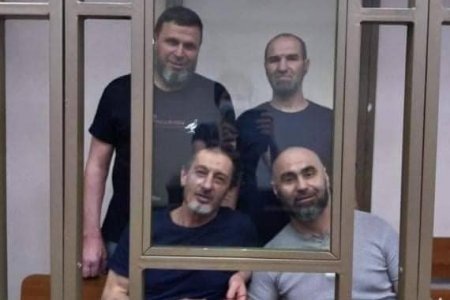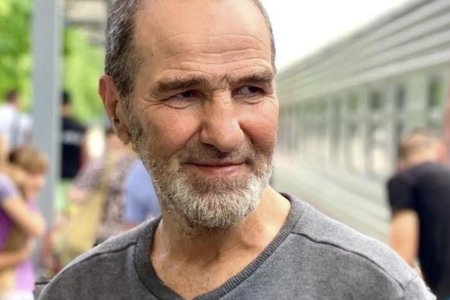
57-year-old Lenur Khalilov has been released from the Russian prison colony where he was serving an 18-year politically motivated sentence linked with Russia’s attack on his independent religious community in occupied Crimea. He was freed only because of what his wife has described as an oncological disease which is, apparently, on Russia’s list of illnesses precluding imprisonment. The fact that he can, after six years in Russian captivity, return home and be with his family, is, of course, welcome, however he should never have been imprisoned and almost certainly should have been released on health grounds some time ago. Russia has, furthermore, already caused the death of several Crimean Tatar or other Ukrainian political prisoners and is directly jeopardizing the life of imprisoned Crimean Solidarity journalist Amet Suleimanov, whose illnesses also fall under the same Russian list.
Umida Khudoiberdinova explained to Crimean Solidarity that her husband had been placed in the prison hospital almost immediately after he was transferred from the notorious Vladimir Central prison in February 2025 to a prison colony in Arkhangelsk. If he was evidently weak enough to be hospitalized immediately and formally diagnosed, it seems likely that he had already shown symptoms while in the Vladimir prison, with these ignored. It was only on 20 August 2025 that the Isakogorsk district court in Arkhangelsk ordered his release, with the prison administration having bought tickets for his return to occupied Crimea by train.
12-18-year sentences for religious independence and human rights activism

Lenur Khalilov (b. 1967) is one of four recognized Crimean Tatar political prisoners arrested on 10 June 2019. after armed ‘searches’ which made no pretence of looking for anything but ‘prohibited religious literature’. Ruslan Mesutov (b. 1965); Ruslan Nagayev, (b. 1964); and Eldar Kantimirov (b. 1980) were sentenced to 18, 13 and 12 years, respectively and remain in Russian captivity.
Although in most aspects one of Russia’s most notorious conveyor belt ‘trials’ where long sentences are guaranteed from the moment the armed searches begin, there was one specific detail. Lenur Khalilov was imam and head of the independent ‘Alushta’ religious community which the occupation regime was trying to crush, while Ruslan Mesutov was an active member of the community, as was another political prisoner and Amnesty International prisoner of conscience Muslim Aliev. The arrests on 10 June 2019 came just two weeks before the Alushta community’s legal challenge against the occupation regime’s seizure of the 19th century Yukhary-Dzhami Mosque which the community has legally occupied since 1994. Ruslan Nagayev was probably also targeted for his ‘religious dissidence’, while Eldar Kantemirov’s had actively defended political prisoners, with this, in occupied Crimea, enough to have the FSB come for you.
The men were accused only of unproven involvement in Hizb ut-Tahrir , a peaceful transnational Muslim organization which is legal in Ukraine. Russia became the first country in the world (joined in 2016 by Uzbekistan) to declare Hizb ut-Tahrir ‘terrorist in a 2003 Supreme Court ruling passed behind closed doors. with neither Hizb ut-Tahrir members, nor human rights NGOs given a chance to make submissions. No adequate explanation has ever been provided for labelling as ‘terrorist’ an organization which is not known to have committed, or even threatened, acts of terrorism or violence in Russia or anywhere else in the world.
Lenur Khalilov and Ruslan Mesutov were charged with the more serious ‘organizer’ role under Article 205.5 § 1 of Russia’s criminal code; Eldar Kantimirov and Ruslan Nagayev with ‘involvement in such an alleged ‘group’ (Article 205.5 § 2). All four men were also charged, under Article 278, with ‘planning to violently seize power’. The prosecution explained this truly surreal charge by claiming that the four men, as supposed members of Hizb ut-Tahrir, were planning a state coup via ‘“the total Islamization of the population”.
Just as there was no recognizable crime, there was no real evidence, only fake assessments’ by FSB-loyal ‘experts’ and so-called ‘secret witnesses’ who may well Such ‘evidence’, it should be stressed, is only of alleged involvement in a peaceful movement which is legal in Ukraine.
The ‘trial’ took place at the Southern District Military Court in Rostov (Russia) under presiding judge Roman Viktorovich Saprunov, together with Maxim Mikhailovich Nikitin and Rizvan Abdullayevich Zubairov, Like prosecutor Yevgeny Kolpikov, they had taken part in other such political ‘trials’, and provided the monstrous sentences demanded of them on 16 August 2021. The 18-year sentences against Khalilov and Mesutov; 13-year sentence against Nagayev and that of 12 years against Kantemirov – were all in the harshest of Russia’s appalling penal institution, with the first two years in a prison, the very worst, and then in harsh-regime or maximum-security prison colonies, which are all thousands of kilometres from the men’s homes and families in Crimea.
The sentences were all upheld on 14 August 2022 by the Vlasikha military court of appeal.
Many in danger
Russia has already caused the death of Crimean Tatar civic activist Dzhemil Gafarov; Kostiantyn Shyrinh; Oleksandr Markov; Victor Demchenko and others. 27-year-old Ukrainian journalist Victoria Roshchyna; and Oleksandr Ishchenko almost certainly died as a result of the torture to which they were subjected.
There are a number of Ukrainian political prisoners whose state of health means that even Russian regulations say they should be released. This was the case with Dzhemil Gafarov, yet he was not only held in captivity, but was even sentenced to 12 years, despite this being an evident death sentence. The same applies to imprisoned Crimean Solidarity civic journalist Amet Suleimanov, and publicity and pressure on the Russian authorities to release him now are vital.



